New Staff Members and Fellows
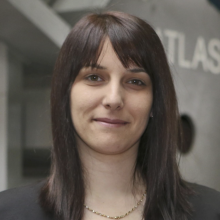
Danijela Bogavac
I'm an experimental particle physicist working in the ATLAS experiment as a research fellow since January 2022. I received my PhD from the Ludwig-Maximilians University, Munich and completed a postdoc at IFAE-Barcelona. During my fellowship, I will focus on searches for Dark Matter candidates and continue my work as a convener of the Exotics subgroup: Jet and Dark Matter. In addition, I will be involved in the Tile calorimeter operation with a special focus on its inputs to the ATLAS trigger system, as well as in the study related to the design of the hadronic calorimeter for the Future Circular Collider.
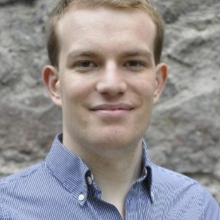
Florian Brunbauer
Florian first joined CERN as Summer Student and later as Doctoral Student and Fellow before taking on his new role as Staff in the EP-DT-DD Gaseous Detector Development (GDD) lab from February 2022. His work focuses on the development of novel MicroPattern Gaseous Detector (MPGD) technologies including precise timing detectors with tens of ps resolution, new techniques such as additive manufacturing, advanced materials for solid converters and readout approaches including optical and hybrid readout. His work is strongly linked to the EP R&D programme on experimental technologies and his involvement in the RD51 Collaboration.
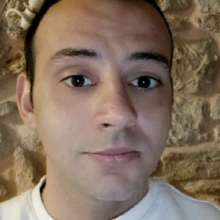
Alexandros Diamantis
Hi, my name is Alexandros Diamantis, I am 28 years old, and I am from Greece! I started my work as a Technical Fellow on 01/01/2022 and since then I have participated in various tasks related to the EP-DT department. My supervisor is Jerome Daguin but I also have a very close contact with Francisco Perez. I am working mainly at TIF and TBPS supporting various technical activities associated with the construction and testing of the CMS outer tracker mechanics and cooling. At TIF I am taking part in the operation of the evaporative CO 2 cooling system for the detector, supporting the detector team for testing and commissioning various activities. I am also involved in the maintenance activities for the CO 2 cooling system for the Detector. At TBPS, I am involved in the manufacture of prototypes and small series of mechanical parts, made of metal, plastic and composite materials, from the design to the part manufacture and integration into mechanical assemblies!
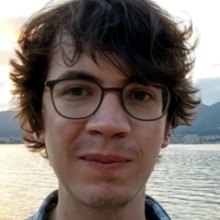
Stephen Joseph Dolan
After finishing a CERN research fellowship, I am very happy to be continuing as a research staff member based primarily within the EP-nu group. Before coming to CERN, I received my PhD from the University of Oxford in 2017 and then worked as a postdoc at Ecole Polytechnique and CEA in Paris. My primary research interest is exploring new physics with precision measurements of neutrino oscillations using the T2K and DUNE experiments, but I am also involved in Fermilab’s SBN program as well as the “e4nu” and “3DET” collaborations. Much of my research has a particular focus on understanding the few-GeV neutrino-nucleus interactions we use to extract measurements of neutrino oscillation parameters.
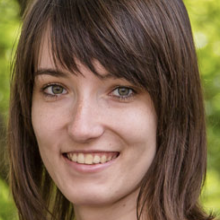
Katarina Gajdosova
I started as a CERN research fellow in January 2022, after receiving my PhD at the University of Copenhagen, and completing a postdoc at the Czech Technical University in Prague. I would like to understand the properties of the quark-gluon plasma and limits of its formation. I will study this using the hard probes, in particular by measuring the production and anisotropic flow of heavy flavor hadrons on the new Run 3 data of pp and Pb—Pb collisions at the LHC in the ALICE experiment. I will also contribute to the hardware R&D for the future ALICE3 project.
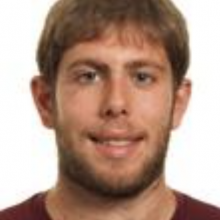
Francesco Giuli
From the beginning of my Ph.D., back in 2014, the focus of my research has mainly been the deep study of the internal structure of the proton. I have participated in several measurements of the Parton Distribution Functions (PDF) of the proton both within and outside the ATLAS Collaboration. Then, after taking part in a few BSM searches for Z’, I started contributing to the low mass Drell Yan and W+c analyses. I plan to join the trigger team to work on the Run-3 menu and some dedicated HLT triggers with ML-based algorithms. I will continue as convener of the ATLAS PDF forum until September and I plan to join the Z mass measurement.
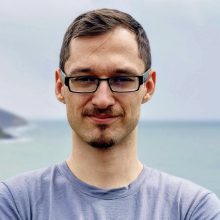
Luboš Krcal
At the end of 2021, I have joined ALICE O2-EPN project as a computing engineer. My main role is to facilitate the real-time operations of the GPU HPC farm, establish processes for software verification, consolidate monitoring, logging, and alerting infrastructure. My other role is to provide high-level expert support to software developers working on GPU performance optimizations of the O2 software. Before joining CERN I worked in R&D on cloud platform projects in New Zealand and in the US, as a research associate in distributed databases and GPU indexing in Singapore, and as a software engineer in automotive industry in Prague. My background is in computer science from the Czech Technical University in Prague.
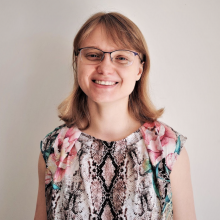
Anna Kulinska
I have joined the EP Electronic Systems for Experiments (ESE) group as a fellow. I am a control systems engineer with a great interest in FPGA technology. With my work I contribute to the electronics of the ATLAS Level-1 Trigger System. Being at CERN is a unique opportunity for me to improve skills and knowledge in firmware development and application of verification methodologies. Currently I am finishing work on the ATLAS Local Trigger Interface (ALTI) firmware for the Run-3. My next task will focus on the development of the Central Trigger Processor (CTP) prototype firmware for the High Luminosity Upgrade.
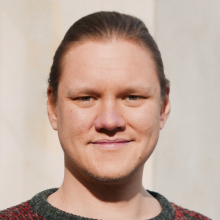
Santeri Laurila
I am an Experimental Particle Physicist from Finland, starting in March as LD Research Staff. I continue in the EP-CMG group where I worked as a Senior Research Fellow for the past two years. I obtained my PhD from the University of Helsinki in 2019. My current research mostly focuses on Higgs physics analyses with highly boosted jets, especially searches targeting yet unobserved Higgs pair production. In the CMS Higgs working group, I am coordinating the deployment of improved triggering algorithms for the upcoming Run 3. I also contribute to the Phase-2 upgrade project of the CMS trigger system for the HL-LHC.
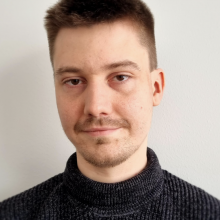
Jasper Parkkila
Having completed my PhD in 2021 at University of Jyväskyl in Finlandä, I am now joining CERN as a senior fellow and member of the ALICE physics analysis group. My work includes study of quark-gluon plasma through measurements of particle correlations and simulations, and the ultimate purpose of the research is to better understand the nature and properties of this strongly interacting medium. During my fellowship, I will be involved in heavy-flavour physics analysis, Run3 physics data commissioning, as well as ALICE O2 software development and hardware activities around ALICE3.
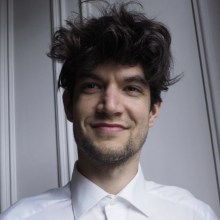
Ondrej Penc
Ondrej has recently finished his Ph.D. studies in Prague, where he analyzed the ATLAS data to probe the Vector Boson Scattering processes. The existence of the phenomena was confirmed with 5-sigma significance in two- and four-charged-lepton final-states of two decaying Z bosons, to be published in Nature Physics soon. He also worked for the software High-Level Trigger of ATLAS, primarily in the Inner Detector Trigger group. Although, he did many shifts for the collaboration as the Trigger Online Expert. Ondrej holds an M.Sc. degree in robotics, so the field of hardware has a firm place in his heart as well. Therefore, his fellowship can be dedicated to the hardware L1 Trigger of ATLAS, where he will be involved in the commissioning and operation of the ATLAS Phase-1 Central Trigger system.
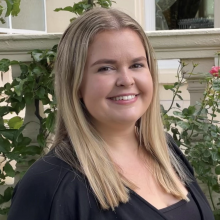
Laura Jayne Rowland
I joined the EP Safety Office as a Fellow at the beginning of February. I previously worked in the Civil Nuclear Energy sector, authoring Safety Cases and Design Substantiation Reports for New Build plant in the United Kingdom, in addition to completing Periodic Safety Reviews of operational and decommissioning plant. I graduated from the University of Manchester with a Masters’ degree in Chemistry, having performed my research at the Dalton Nuclear Institute in Cumbria. I’m excited to further apply these skills in my new role. If you have any Chemistry or Safety related questions, I’m happy to help!
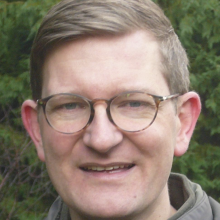
Philip Sommer
I joined CERN as a Senior Research Fellow in February. Previously, I have worked as a post-doctoral researcher at the University of Sheffield (UK) and as a PhD student at the University of Freiburg (Germany). My primary research interest has been in the gauge sector of the electroweak theory of the Standard Model. I have performed precision tests of the electroweak theory by studying processes sensitive to self-interactions of the W and Z bosons, and the photon with the ATLAS experiment. During my fellowship I will perform measurements sensitive to the Higgs-boson self-coupling. In addition, I will work on the electron and photon reconstruction in ATLAS and the development of high-granularity liquid Argon calorimetry for the next generation of collider experiments.
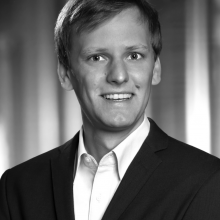
Tim Wolz
Tim graduated from Technische Universität Darmstadt (TUD), Germany and Ecole Centrale de Lyon, France in 2017. As a member of the AEGIS and ASACUSA collaboration he received a PhD in physics from TUD in 2021 for his work on stimulated deexcitation of Rydberg antihydrogen atoms that are synthesized in experiments at CERN’s Antiproton Decelerator. Tim's PhD research was funded through a Wolfgang Gentner Scholarship and supported by the German Academic Scholarship Foundation. As a fellow, he will work toward increased pulsed production rates of antihydrogen with AEGIS. Tim will contribute to antimatter detector developments and laser physics experiments with positronium.
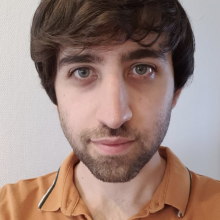
Nima Zardoshti
I have started an LD position in experimental physics, working with the ALICE experiment. My current research aims at characterising QCD mechanisms that drive the evolution of parton showers, such as constraining the role of mass in the splitting functions, using heavy-flavour jet substructure. In addition, I am interested in exploring the boundary of perturbative and non-perturbative QCD by performing studies of in-jet hadrochemistry down to low transverse momenta. Run 3 will be an exciting period for this program, as the ALICE detector has been significantly upgraded to access heavy-flavour jet measurements with unprecedented accuracy, in both pp and heavy-ion collisions.
